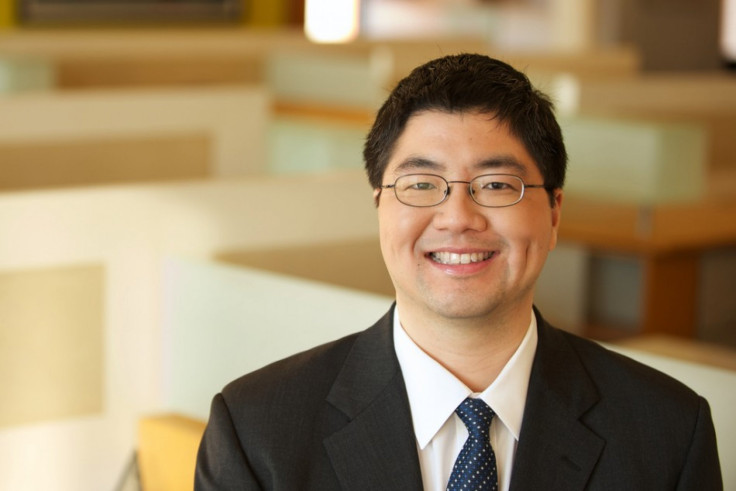Recyclebank Turns Trash to Rewards for 3+ Million Members
New York Web Column

Your life is filled with trash. Plastic wrappers, pizza boxes, Styrofoam take-out containers, soda cans, batteries and a box full of old cellphones you don't use anymore. They aren't only cluttering your measly studio apartment, they're affecting the rest of us on the pale blue dot we know as Earth.
Jonathan Hsu, CEO of Recyclebank and professional trash-talker, is looking for ways to help you reduce your carbon footprint and earn rewards. He's doing so at the helm of an almost eight-year-old company, a dinosaur in Silicon-Alley years. Nonetheless, Recyclebank is far from stale. The company is partnering with more than 300 communities and 3.1-million members to take everyday actions toward changing the environment.
It's a novel idea--turning everyday actions to rewards--and one that Hsu covets. [Recyclebank] was unlike anything I've ever seen before because it merged online and offline, he says, describing the reasons he decided to join the team. At the very heart of it, it's the only thing I've ever seen in the business world where you can do good and do well simultaneously. I think that's a really special position to be in.
The range of possible actions that can be rewarded by Recyclebank is vast. To earn rewards, first people must sign-up on Recyclebank's website. Then members of the service can play online games, recycle product materials, purchase products and much more to earn points. Points lead to rewards. Rewards come in a variety of flavors: Products, discounts or you can pay the good deed forward by donating your points to support environmental education programs in schools. To date, Recyclebank has worked with more than 3,000 partners, including Macy's, Coca-Cola, Ziploc, Barnes and Noble, Nestle Purina and several city governments, in order to develop campaigns that promote a sustainable lifestyle.
Recyclebank, in many ways, serves as a matchmaker between large corporations, city governments and everyday people. Hsu describes it as a Win, Win, Win situation. The more people participating, the better off everyone is: city governments save on waste, consumers earn rewards and companies get major enviro-credibility. The company has been able to help several cities, the largest being Philadelphia, and it hopes to expand its overseas programs beyond the UK sometime in the near future.
At some point, life is very short. Not only is Recyclebank a great place to make a difference, but here was a chance to shape a culture and rebuild a team from scratch in the way that I'd like to live my life, says Hsu. We spend so much time at work, you want to be around people who are smart, passionate and driven.
Hsu, long before he joined Recyclebank, understood the obstacles that come with running a startup. He had been leading large firms in Silicon Alley for several years. After leading 24/7 Real Media to success and through being sold to WPP, a global advertising company, Hsu decided to come to Recyclebank. It was the one chance he had to do some good in the world while growing as a professional.
I was lucky enough in my previous position to be witness to and participate in some very high-profile moments--meeting with luminaries, being featured in top publications, dealing with titans of industry, he says. It was very interesting, but I will tell you, the experience I'm getting here is an order of magnitude more interesting and exciting--a little overwhelming quite frankly. It's breathtaking.
Hsu has been with the company since October 2010 and has enjoyed every minute since joining. I've never heard a 'No.', says Hsu. Everyone wants to be a part of it. One of our challenges is prioritizing. He concedes that the company takes a member-centric view of the world and says everything flows from there. In addition to their unique relationship between companies and governments, Recyclebank has a sophisticated data site that allows them to optimize the experience of each member depending on their location and previous participation in the program.
I trust the inherent intelligence and the inherent goodness of people, says Hsu. They'll figure it out. You just have to give them the informational tools and let them go with it. That's really the winning model going forward.
© Copyright IBTimes 2024. All rights reserved.





















